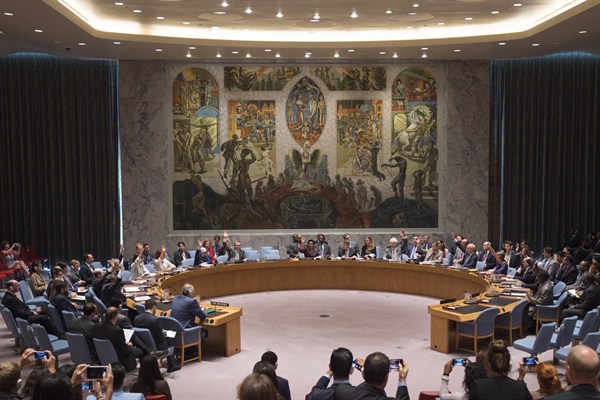The United Nations was famously founded to “save succeeding generations from the scourge of war.” It has a distinctly mixed track record on this front. Today, the U.N.’s goal often seems to be best described as making the scourge of war a little bit less dreadful.
The Security Council demonstrated this tendency last Friday, when it endorsed an American-backed resolution launching a new panel to investigate the use of chemical weapons in Syria’s civil war. The panel, which will involve the U.N. and the Organization for the Prohibition of Chemical Weapons (OPCW), is empowered to identify those responsible for dropping chlorine bombs on civilians. Yet as Security Council Report, a think tank that follows U.N. diplomacy closely, notes, the U.S. took four months to negotiate this agreement with Russia, and the text is “heavily focused on process.”* There is no suggestion that individuals accused of using chlorine as a weapon of war will end up in front of an international court anytime soon.
Even Samantha Power, the U.S. ambassador to the U.N., called this a “modest” advance. Moscow’s willingness to assent to the resolution at all may look positive, but, as I argued in a paper for the European Council on Foreign Relations (ECFR) in June, Russian diplomats at the U.N. are good at both “entangling the West in fragile peace initiatives that have little genuine chance of success” and “dispensing more-or-less illusory concessions on minor issues to appear constructive.” There is a fair chance that, in a few months, this deal will just look like another false concession.

